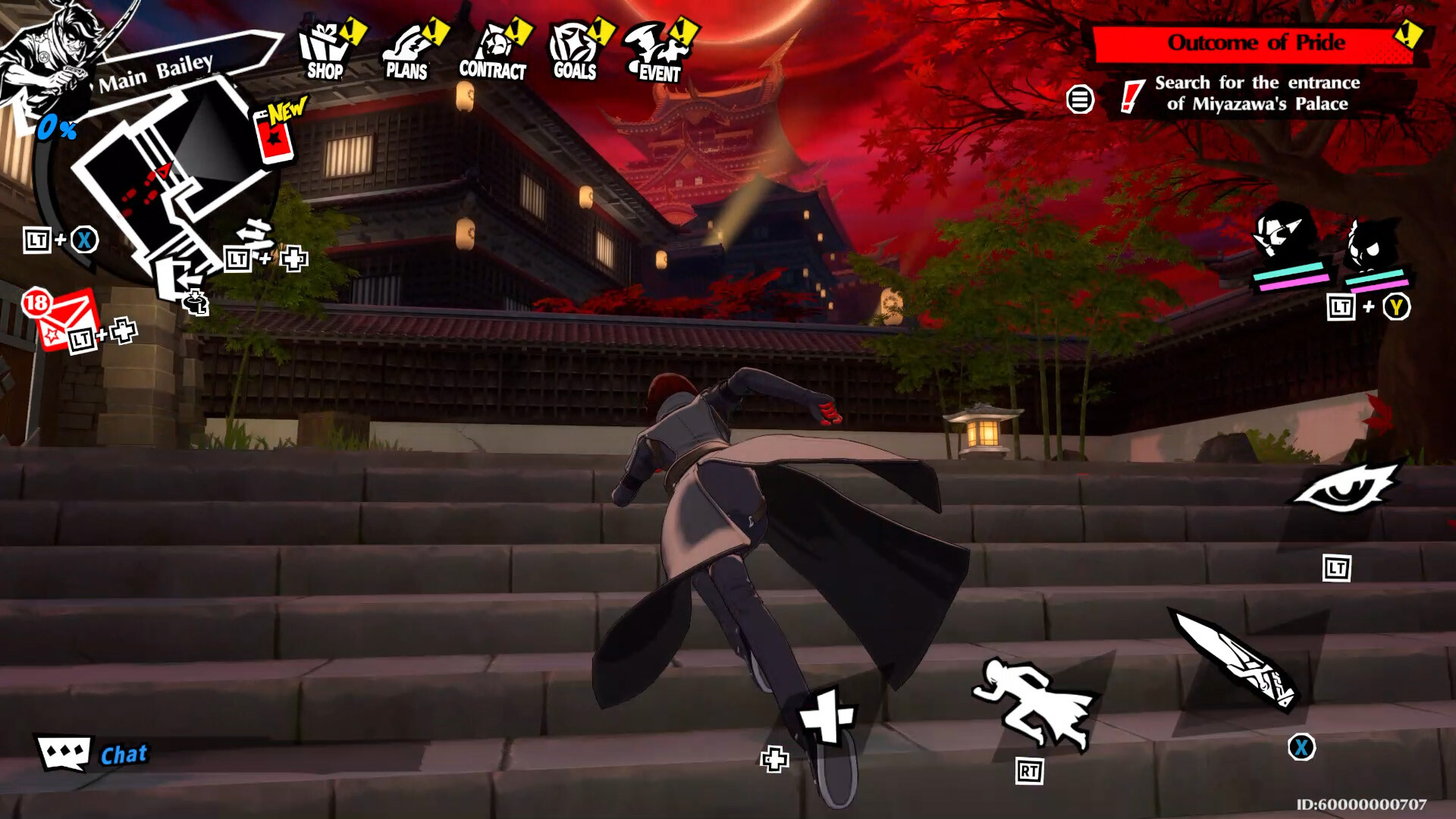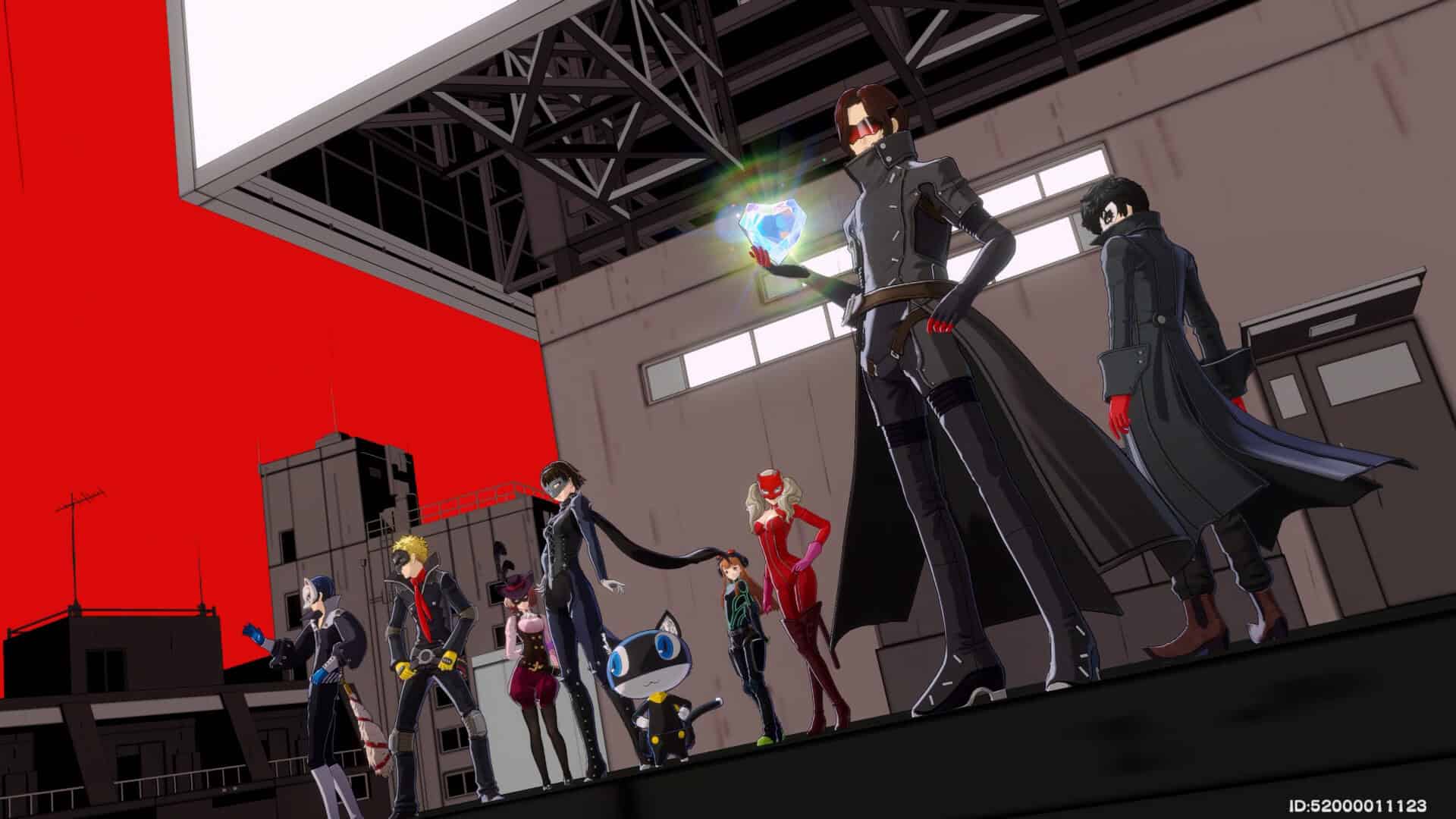The Persona series continues its global domination with Persona 5: The Phantom X (P5X), an ambitious spin-off launching worldwide on June 26, 2025. Originally developed for the Chinese market, this free-to-play title is now making its debut across Steam, iOS, and Android, bringing the signature style and psychological depth of Persona 5 to a new platform and audience.
A Standalone Story With Familiar Soul
Unlike a direct sequel, The Phantom X offers a completely new narrative within the Persona 5 universe. Players take on the role of a new protagonist codenamed “Wonder,” a high school student drawn into a distorted version of Tokyo where people’s desires are mysteriously vanishing. Alongside his talking owl companion, Lufel, Wonder forms a new band of Phantom Thieves to confront the chaos within this surreal realm.
Despite its mobile and PC focus, P5X stays true to the heart of the series—blending slice-of-life school simulations with dramatic dungeon-crawling and turn-based combat.
Classic Persona Gameplay, Optimized for Mobile
- Turn-Based Combat: The battle system mirrors that of Persona 5, complete with elemental affinities, Baton Pass, and All-Out Attacks.
- Daily Life Mechanics: Players can attend classes, build relationships, and improve their character stats, reminiscent of the social sim elements that define the franchise.
- Energy and Gacha Systems: To fit mobile standards, P5X introduces an energy-based action system and gacha mechanics for acquiring new Personas and allies. Some characters are cognitive variants of beloved P5 figures like Joker, Skull, and Panther.
Multiplayer and New Game Modes
P5X isn’t just a single-player experience. It introduces:
- Guild Systems: Team up with other players for shared challenges and resources.
- Velvet Trials: A PvE mode offering high-difficulty battles and leaderboard rewards.
- Mini-Games and Events: Frequent live events and time-limited content promise long-term engagement.
Huge Momentum Ahead of Launch
As of late May 2025, P5X has already surpassed 1 million pre-registrations globally, a massive milestone for a franchise spin-off. Players who pre-register will receive 10 free gacha tickets, with more bonuses promised if the community hits additional targets before launch.

Art and Music From the Original Creators
P5X might be developed by Black Wings Game Studio, but it’s no distant cousin of the original Persona 5. Atlus and Sega are heavily involved, and fan-favorite creatives are back:
- Shigenori Soejima, original Persona 5 character designer, returns to craft the new protagonist and his initial Persona.
- Ryota Kozuka, composer of P5’s iconic soundtrack, penned the game’s main theme, Ambitions and Visions.
The result is a spin-off that not only respects its source material but builds on it in a way that feels fresh—without losing that signature Persona flair.
Should Fans Be Excited?
Absolutely. Persona 5: The Phantom X may carry the weight of free-to-play systems, but early impressions suggest it successfully captures the spirit of Persona 5 while introducing mechanics better suited for on-the-go gaming. If you’ve ever wanted a full-fledged Persona experience in your pocket—or on your PC—P5X looks ready to deliver.
Whether you’re a longtime fan or curious newcomer, June 26, 2025, might be your next entry point into one of the most stylish JRPG universes ever created.
Best RPGs of All Time
Role-playing games have captured the hearts of gamers for decades. RPGs let players step into new worlds and become heroes. The best RPGs of all time combine great storytelling, deep character building, and fun gameplay that keeps players coming back for hundreds of hours.
These games come in many forms – from classic tabletop experiences to modern open-world digital adventures. Some focus on complex combat systems while others shine with their branching storylines and tough choices. Many RPG fans have strong opinions about which games deserve to be called the greatest, often based on personal experiences and the games that first drew them into the genre.
1. The Witcher 3: Wild Hunt
The Witcher 3: Wild Hunt stands at the top of many RPG lists for good reason. This game took the gaming world by storm when it was released, setting new standards for what players expect from RPGs.
The game follows Geralt of Rivia, a monster hunter searching for his adopted daughter. This simple premise unfolds into a rich story filled with tough choices and deep characters.
What makes The Witcher 3 special is its living, breathing world. Your actions change how the story plays out. Even small decisions can have big effects later in the game.
The side quests in The Witcher 3 break the usual RPG pattern. Instead of basic fetch quests, each side story has depth and meaning. Many players find these side adventures just as good as the main story.
Combat in the game mixes swordplay with magic signs and potions. Players must plan fights against tough monsters by learning their weaknesses first.
The game world spans several large areas from war-torn fields to snow-covered mountains. Each region has its own feel and problems to solve.
Character growth works through both skills and gear. Finding better swords and armor is just as important as picking the right abilities.
The writing quality stands out among video games. The quest design is masterful, with stories that stay with players long after they finish playing.
The two DLCs, Hearts of Stone and Blood and Wine, add even more quality content. Blood and Wine could almost be its own game with a new map and many hours of gameplay.
Many fans and critics point to The Witcher 3’s blend of fantastic writing and open-world freedom as why it tops RPG lists. The game respects player choices while telling an engaging story.
The game has aged well since its 2015 release. Updates have fixed early bugs and even added visual improvements for newer systems.
For many players, The Witcher 3 set a new bar for what RPGs can be. It proves games can tell complex stories while still being fun to play.
2. Baldur’s Gate 3
Baldur’s Gate 3 has taken the RPG world by storm since its release. Many players and critics call it one of the best RPGs of all time, putting it in the same league as classics like Planescape Torment and Fallout 2.
The game stands out for its incredible voice acting. Every line is fully voiced, bringing the characters and world to life in a way few other games have managed.
Player choice is at the heart of Baldur’s Gate 3. Your decisions truly matter and can drastically change how the story unfolds. This level of choice gives the game huge replay value.
The combat system takes the best parts of Dungeons & Dragons 5th Edition and turns them into fun, tactical battles. Players can use the environment, positioning, and creative spell combinations to win fights.
Larian Studios packed the game with small details that make the world feel alive. NPCs remember your actions, and companions react to how you treat them and others.
Some critics argue Baldur’s Gate 3 might not be the absolute best RPG ever made. A few suggest it might rank in the top 20 rather than the top 5, but even they admit its quality.
The relationship systems in the game have drawn both praise and criticism. While some players love the romance options, others wish for more platonic friendship options with companions.
PC Gamer called Baldur’s Gate 3 a “landmark game” and “a landmark in the history of PC gaming”. This speaks to how the game has changed expectations for what RPGs can be.
The writing quality sets a high bar. Characters feel real, with complex motivations and personalities that develop throughout the story.
Some gaming journalists have pushed back against calling it “a new standard” for all RPGs. They argue it’s a unique game that shouldn’t be used to judge other RPGs unfairly.
The graphics and art design create a beautiful fantasy world. From dark dungeons to bright forests, each area feels distinct and carefully crafted.
Baldur’s Gate 3 shows what happens when developers take their time and focus on quality. The game spent years in early access, with Larian using player feedback to improve it before the full release.
3. Elden Ring
Elden Ring stands as one of the most significant open world games ever made. Released by FromSoftware, this game combines the challenging combat they’re known for with a vast open world that players can explore at their own pace.
The game takes place in the Lands Between, a setting created with help from George R.R. Martin. Players take on the role of a Tarnished, fighting to repair the shattered Elden Ring and become the new Elden Lord.
What makes Elden Ring special is its freedom. You can go almost anywhere from the start. See a castle in the distance? You can try to reach it. The game doesn’t hold your hand or block your path.
Combat in Elden Ring is tough but fair. Each enemy has patterns to learn, and each death teaches you something new. Many players find this challenge on a reflex level to be part of what makes the game so rewarding.
The build variety is amazing. Want to be a wizard? A knight? A mix of both? Elden Ring lets you play however you want. You can find weapons, spells, and armor that fit your style perfectly.
The world itself tells stories without long cutscenes. Old ruins, giant statues, and odd characters hint at the history of the Lands Between. This makes exploring fun and meaningful.
Some critics say Elden Ring isn’t a real RPG like Fallout. They point to its focus on action over dialogue choices. But many consider it the best RPG of 2022 and even among the best of all time.
The game won multiple Game of the Year awards. Its success comes from blending hard combat with an open world in ways no game had done before. It changed what players expect from open world games.
Despite its difficulty, Elden Ring welcomes new players better than past FromSoftware games. You can always go somewhere else if you get stuck, and come back stronger later.
The boss fights are epic. From dragons to demigods, these battles test your skill and patience. Beating a boss after many tries gives a feeling few other games can match.
Online features add another layer. Players can leave messages for others, join to help with tough fights, or invade other worlds for PvP combat.
4. Star Wars: Knights of the Old Republic
Star Wars: Knights of the Old Republic stands tall as one of the best RPGs ever made. Released in 2003, this game took players 4,000 years before the events of the Star Wars movies.
The game lets players choose their path – Light Side or Dark Side of the Force. These choices impact the story in meaningful ways, giving players true control over their adventure.
BioWare created a masterpiece with KOTOR during what many fans call their prime era of development. The game’s connection to the Star Wars universe helped it reach wide appeal while maintaining deep RPG elements.
The combat system uses a hidden dice-roll mechanism based on Star Wars d20 rules. Players can pause combat to plan their next moves, making strategy just as important as quick reflexes.
What sets KOTOR apart is its storytelling. The game features one of the greatest plot twists not just in gaming, but in Star Wars history. Even 22 years later, this twist remains powerful for new players.
The characters make the galaxy feel alive. From the loyal Wookiee Zaalbar to the sarcastic assassin droid HK-47, each companion brings unique personality and backstory to the adventure.
Many RPG fans use KOTOR as the standard they compare other games to. Its dialogue systems and quest structure created a blueprint for future RPGs.
In various rankings, KOTOR often places high among the best RPGs ever made. One list put it at #12 in the top 25 RPGs, while another ranked it #2 behind only The Witcher 3.
The game’s success led to a sequel, Knights of the Old Republic II: The Sith Lords. Though the sequel was rushed to release, many fans still hold it in high regard for its complex characters and deeper exploration of Force philosophy.
KOTOR’s legacy lives on with a remake currently in development. For many players, the chance to experience this classic with modern graphics can’t come soon enough.
5. Planescape: Torment
Planescape: Torment is one of the most unique RPGs ever made. This game broke away from traditional fantasy settings and took players to the strange multiverse of Planescape.
The game follows The Nameless One, an immortal who wakes up in a morgue with no memory. Every time he dies, he comes back to life but loses some memories. This creates a fascinating story about identity and regret.
What makes this game special is its focus on story and dialogue rather than combat. You can talk your way through most situations. The writing is smart and thoughtful, with choices that really matter.
Many fans consider it the greatest RPG of all time due to its deep storytelling. The game asks big questions about life, death, and what makes us who we are.
The characters you meet are odd and memorable. From a floating skull named Morte to a living suit of armor, each companion has their own deep story to explore.
Planescape: Torment defies genre expectations with its weird setting and focus on philosophy. Most RPGs ask “What will you do next?” but Torment asks “What can change the nature of a man?”
The game is text-heavy, with over a million words. Players who enjoy reading will find a rich story that few other games match. The choices you make shape who The Nameless One becomes.
In 2017, an Enhanced Edition was released with updated graphics and interface improvements. This made the classic more accessible to modern players while keeping what made it special.
While some find the combat system clunky, most agree that the brilliant writing more than makes up for it. Few games have matched its storytelling depth even decades later.
The game sits near the top of many “best ever” lists. PC Gamer named it their best RPG of all time, and many fans rank it alongside classics like Chrono Trigger and Fallout 2.
6. Mass Effect 2
Mass Effect 2 stands as one of the finest RPGs ever made. Released by BioWare, this space epic took what worked in the first game and improved upon it in almost every way.
The game puts players in the boots of Commander Shepard after a devastating attack on the Normandy. Shepard must build a team to take on the mysterious Collectors who are abducting human colonies.
What sets Mass Effect 2 apart is its character-driven storytelling. Each squad member has a rich backstory and loyalty mission that adds depth to the world. These missions aren’t just side quests – they affect the game’s final outcome.
Combat in Mass Effect 2 strikes a perfect balance between RPG elements and action gameplay. The cover-based shooting feels tight and responsive, while the class abilities add strategic depth.
The sci-fi universe feels comparable to Star Trek or Star Wars in its scope and detail. Each alien race has unique cultures, histories, and conflicts that make the galaxy feel alive.
Choice remains central to the experience. Decisions from the first game carry over, and new choices have real weight. The game’s final suicide mission stands as a masterclass in making player decisions matter.
The Normandy ship serves as a hub where players can talk to crew members between missions. These conversations build relationships and reveal more about the rich sci-fi world.
IGN placed Mass Effect 2 at #11 on their Top 100 RPGs of All Time list, showcasing its enduring legacy. Many fans and critics consider it the highlight of the trilogy.
Some gamers debate whether Mass Effect 2 is truly the greatest action RPG ever. Some prefer games like Dark Souls, Elden Ring, Bloodborne, or Skyrim.
Even 14 years after its release, new players are still discovering and loving the game. The game’s renegade options let players take a more aggressive approach, adding replay value to this sci-fi classic.
7. Dragon Age: Origins
Dragon Age: Origins stands as one of the best RPGs ever made. Released by BioWare in 2009, this game captured the hearts of RPG fans with its deep storytelling and complex characters.
The game lets players choose from different origin stories based on race and class choices. These origins affect how NPCs treat the player throughout the game, adding replay value and making each playthrough feel unique.
Combat in Dragon Age: Origins offers depth and strategy. Players can pause the action at any time to issue commands to party members. The floor ward system allows for creative spell combinations that many fans found fun and engaging.
Character development goes beyond simple stat increases. Each companion has their own personality, beliefs, and goals. How players interact with them affects their approval rating, which can lead to friendship, romance, or even betrayal.
The world of Ferelden feels alive with its rich lore and history. Players face tough moral choices that have real consequences in the game world. There are no clear right or wrong answers to many problems.
Side quests in Dragon Age: Origins feel meaningful rather than just busywork. They often connect to the main story and offer top-notch writing that builds on the game’s themes.
Many gamers rank it alongside classics like Baldur’s Gate 2 and Skyrim in terms of quality and impact. Even years after its release, it holds up well against newer RPGs.
The game’s success led to multiple sequels, but many fans consider Origins BioWare’s best work. Some even argue it ranks as the best BioWare game ever made, surpassing their other famous series like Mass Effect.
The Ultimate Edition includes all DLC content, offering even more hours of gameplay. This version gives players access to new areas, companions, and stories that expand the already huge main game.
Dragon Age: Origins succeeds by combining old-school RPG depth with more modern storytelling techniques. Its influence can be seen in many RPGs that followed it.
8. The Elder Scrolls V: Skyrim
Released in 2011, Skyrim quickly became a landmark in gaming history. Its open world filled with dragons, magic, and countless adventures captured the hearts of millions of players worldwide.
Skyrim stands out for its freedom of choice. Players can create any character they want and play however they like. Want to be a sneaky archer or a powerful mage? The game lets you choose your path.
The game world feels alive and real. Snow-capped mountains, dense forests, and ancient ruins make up the land of Skyrim. These places are not just pretty to look at—they’re full of stories and secrets to uncover.
Many gamers consider Skyrim one of the most immersive worlds in gaming. The attention to detail makes every cave, town, and dungeon feel unique. Even small villages have their own problems and stories.
Combat in Skyrim is simple but fun. You can swing swords, cast spells, or shoot arrows. The game lets you mix these styles however you want. This freedom makes each fight feel personal and exciting.
The main story puts players in the role of the Dragonborn, a hero with the soul of a dragon. While fighting the dragon threat, players can join different groups like the Companions or the College of Winterhold. Each group has its own storyline.
Side quests in Skyrim often shine brighter than the main story. Some quests start with a simple task but grow into complex adventures. Others reveal surprising truths about the game world or its characters.
Skyrim ranks high on many top RPG lists because it offers something for everyone. Some players focus on crafting the perfect character. Others explore every corner of the map. Many simply enjoy living in this fantasy world.
The game’s staying power is remarkable. When it first came out, Skyrim was revolutionary in many ways. Even today, people still play and enjoy it.
A huge reason for Skyrim’s lasting appeal is its massive modding community. Players have created thousands of mods that add new quests, improve graphics, or change how the game works. These mods keep the game fresh and exciting years after release.
Few games have touched so many players or inspired such devotion. Whether you play for the adventure, the freedom, or just to escape into another world, Skyrim remains a high point in RPG history.
9. Disco Elysium
Disco Elysium is one of the best RPGs ever made, breaking new ground in the genre. It throws out combat systems found in traditional RPGs and focuses entirely on dialogue, choices, and skill checks.
The game puts players in the shoes of an amnesiac detective trying to solve a murder case in the fictional city of Revachol. Your choices shape who this detective becomes as you piece together his past.
What sets Disco Elysium apart is its incredible skill system. Instead of strength or dexterity, your skills include things like Logic, Empathy, and Authority. These skills talk to you, giving advice and sometimes bad ideas.
The writing quality reaches heights rarely seen in games. Characters feel real, with complex motivations and beliefs. Conversations can go in countless directions based on your skills and choices.
Revachol itself feels like a living place with a rich history. The city bears the scars of failed revolutions and corporate greed. Political ideologies clash in its streets and in your own mind.
The voice acting and music create deep immersion. Every line in the Final Cut version comes to life through excellent voice performances. The soundtrack perfectly captures the game’s unique atmosphere.
Your character’s clothing choices aren’t just cosmetic—they affect your stats and how others perceive you. Wear a disco outfit and your Authority might rise, but people might take you less seriously.
Moral choices in Disco Elysium avoid simple good/bad options. They present complex ethical dilemmas that make players think about their own values. You can become a communist, fascist, moralist, or ultraliberal—or reject all ideologies.
Some fans consider it objectively the best RPG ever made. Its clean sweep of four awards at The Game Awards in 2019 shows how much it impressed critics.
The game proves RPGs don’t need combat to be engaging. Its focus on conversation and thought creates gameplay just as tense as any sword fight. Your battle is with ideas, ideologies, and your own mind.
10. Fallout: New Vegas
Fallout: New Vegas stands as one of the most celebrated RPGs ever created. Released in 2010, this post-apocalyptic adventure has maintained its reputation as a pinnacle of the Fallout series for nearly 15 years.
What sets New Vegas apart is its exceptional story branching and player choice. The game puts players in control of a courier left for dead in the Mojave Wasteland, allowing them to shape the fate of the region through meaningful decisions.
The game’s faction system remains one of its strongest features. Players can ally with the NCR, Caesar’s Legion, Mr. House, or choose independence, with each path offering unique quests and outcomes. These factions are described as ranging from good to great by many players.
New Vegas excels in writing quality that few games match. The characters feel authentic, with motivations that extend beyond simple quest-givers. Many fans consider the dialogue and narrative depth to be among the best in gaming.
The game’s world-building deserves special mention. The Mojave Wasteland feels alive with its competing interests, hidden stories, and moral complexity. Each location tells a story without relying on excessive exposition.
Combat in New Vegas improved upon Fallout 3 with the addition of iron sights and a more tactical approach to gunplay. The V.A.T.S. system returned, allowing players to target specific body parts during combat pauses.
The DLC expansions for New Vegas are widely praised. Dead Money, Honest Hearts, Old World Blues, and Lonesome Road each bring unique gameplay and storytelling elements while connecting to the main narrative.
New Vegas also walks a fine line between old-school and modern RPG elements. It respects player intelligence while offering accessibility to newcomers.
The game features improved graphics compared to Fallout 3, with better character models, textures, and lighting effects that help bring the wasteland to life.
Despite technical issues at launch, the dedicated modding community has created thousands of mods that fix bugs, improve graphics, and add new content, giving New Vegas remarkable staying power.
Even after many years, Fallout: New Vegas remains the standard against which many RPGs are measured, proving that strong writing and player agency create more lasting experiences than just technical innovation.
Historical Evolution of RPGs
Role-playing games have traveled an amazing path from tabletop origins to complex digital worlds. Their evolution shows how games, technology, and storytelling can blend together to create unique experiences.
The Birth of Role-Playing Games
The modern RPG story begins in 1974 when Gary Gygax and Dave Arneson published Dungeons & Dragons. This game changed everything by letting players control individual characters in fantasy adventures guided by a Dungeon Master.
D&D wasn’t an instant hit. TSR, the company behind it, marketed it as a niche product for hobbyists. Gygax himself didn’t expect it to sell many copies.
Before D&D, wargames like Chainmail provided some foundation, but lacked the character development and storytelling that made RPGs special. Players wanted to be heroes, not just army commanders.
Early RPGs used simple tools: paper character sheets, rule books, dice, and imagination. These games created social experiences where friends gathered around tables to share adventures.
Impact of Technology on RPG Development
When computers entered the scene, RPGs found a new home. Early digital RPGs like Wizardry and Ultima translated tabletop concepts to the screen, adding visuals and removing the need for a human game master.
The 1990s saw massive growth with games like Final Fantasy and EverQuest. These titles showed how technology could create vast worlds with complex stories and gameplay systems.
MMORPGs changed everything by bringing thousands of players together in shared online worlds. Games like EverQuest created virtual societies with their own economies and cultures.
Modern RPGs use advanced graphics, AI systems, and open worlds. Games like Fable II show how player choices can shape both characters and game worlds.
Mobile technology has made RPGs more accessible than ever, bringing these once-niche games to billions of potential players worldwide.
Cultural Impact of RPGs
Role-playing games have shaped entertainment and social interaction since their creation. They’ve grown from niche hobbies to major cultural forces that influence many aspects of our lives.
Influence on Modern Gaming
RPGs have deeply shaped how games are designed today. The character progression systems found in Dungeons & Dragons now appear in countless video games. Players earn experience points, level up, and improve their stats in everything from Call of Duty to Fortnite.
The concept of player choice came directly from tabletop RPGs. Games like The Elder Scrolls and Mass Effect let players make decisions that change the story. This idea started with pen-and-paper games where players could try anything they imagined.
Character classes (warrior, mage, rogue) are now standard in gaming. These came from early RPG systems that needed ways to define character abilities. Modern games use these same frameworks.
RPGs also introduced cooperative play focused on storytelling rather than competition. This shift changed how players interact with games and each other.
RPGs in Popular Media
Television shows like Stranger Things put RPGs front and center in their stories. The show’s characters play D&D, bringing the game to millions of viewers who might never have seen it otherwise.
RPGs have influenced major films and books. The Lord of the Rings movies gained new fans through people who played fantasy RPGs. Many fantasy writers today started as RPG players.
The cultural impact extends to language and social interaction. Terms like “leveling up” or “grinding” started in RPGs but are now used in everyday speech.
RPG communities have become more diverse and inclusive over time. Games now feature characters and settings from many cultures, helping players see perspectives different from their own.
Critical Elements of a Successful RPG
Role-playing games stand apart through their unique combination of storytelling and player agency. The best RPGs balance these elements while giving players meaningful choices that impact their experience.
Narrative and Storytelling
A compelling story forms the backbone of any great RPG. The narrative needs to engage players from the beginning and keep them invested throughout their journey.
Great RPGs offer players meaningful choices that affect the story’s outcome. These choices should feel important and have real consequences in the game world.
The setting must be rich and believable, whether it’s a fantasy realm, post-apocalyptic wasteland, or sci-fi universe. Players should want to explore and learn more about the world.
Strong characters with clear motivations make stories more engaging. This includes both player characters and NPCs who populate the world.
Side quests should enhance the main story rather than feel like distractions. They often provide deeper insight into the game’s world and characters.
Character Development and Customization
Players need to feel invested in their character’s growth. Character progression is a core RPG element, typically through leveling systems that allow characters to become more powerful over time.
Character customization gives players ownership over their experience. This includes:
- Visual appearance (faces, body types, clothing)
- Skill trees and abilities
- Class or role selection
- Personality traits that affect dialogue options
The best RPGs make character choices matter in gameplay. A warrior should play differently than a mage, and character builds should enable various play styles.
Equipment and loot systems provide another layer of customization. Finding rare gear should feel rewarding and change how players approach challenges.
Stats and attributes need to have clear effects on gameplay rather than just being numbers that increase.
Frequently Asked Questions
RPG fans often have specific questions about top games, ratings, and gameplay styles. Here are answers to the most common questions about the best RPGs of all time.
Which RPG games have received the highest ratings on Metacritic?
Several RPGs stand out with exceptional Metacritic scores. The Witcher 3: Wild Hunt has a 93 Metacritic score, making it one of the highest-rated RPGs ever.
Baldur’s Gate 3 earned a remarkable 96 on PC, placing it among the best-reviewed games in history. Elden Ring also achieved a 96, with critics praising its open-world design and challenging gameplay.
What are the top-rated RPGs currently available on PC?
PC players enjoy access to many outstanding RPGs. Baldur’s Gate 3 currently holds the top spot for recent releases, with its deep character customization and reactive world.
The Witcher 3: Wild Hunt remains a PC favorite years after release. Other highly-rated options include Disco Elysium with its unique skill system and narrative focus.
Divinity: Original Sin 2 also ranks among PC’s best with its turn-based combat and creative problem-solving options.
Which titles are frequently mentioned in discussions of the best JRPGs?
Final Fantasy X consistently appears in discussions of top JRPGs. It’s noted for its emotional story and memorable characters. It’s often cited as a favorite Final Fantasy game.
The Persona series, especially Persona 5 Royal, receives high praise for its social simulation elements and stylish presentation. Dragon Quest games also appear frequently. Dragon Quest VIII and XI earn special recognition.
Chrono Trigger is another common mention. Many fans consider it the perfect JRPG despite its age.
What are the best turn-based RPGs released to date?
Persona 5 Royal stands out with its strategic combat and stunning visual style. The game combines deep social mechanics with engaging turn-based battles.
Final Fantasy X features one of the most loved turn-based systems that allows for tactical character swapping. Divinity: Original Sin 2 offers incredibly creative turn-based combat with environmental interactions.
Dragon Quest XI delivers a polished traditional turn-based experience with beautiful visuals and classic gameplay.
Which RPG game has achieved the most commercial success historically?
Pokémon as a franchise has sold over 440 million copies, making it the most commercially successful RPG series ever. The combined sales of all Pokémon RPG titles dwarf other franchises.
Final Fantasy has sold more than 168 million units across its main series and spinoffs. The Elder Scrolls V: Skyrim alone has sold over 30 million copies across multiple platforms and re-releases, making it one of the most successful single RPG titles.
Are there any RPGs that are known to have cognitive benefits for players?
RPGs can improve problem-solving skills through complex puzzles and strategic combat scenarios. Games like Baldur’s Gate 3 and Divinity: Original Sin 2 encourage creative thinking and planning.
Story-rich RPGs like Disco Elysium may enhance empathy and emotional intelligence by allowing players to experience different perspectives. RPGs with moral choices can promote ethical reasoning and decision-making skills.
Role-playing games often require reading significant amounts of text. This can potentially improve vocabulary and reading comprehension in younger players.







